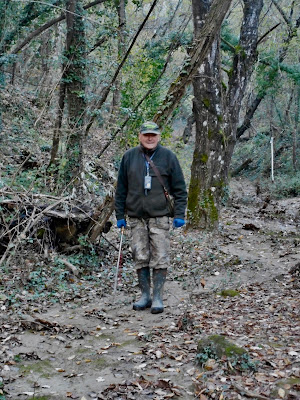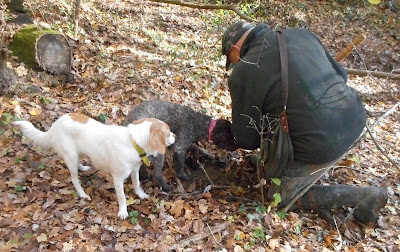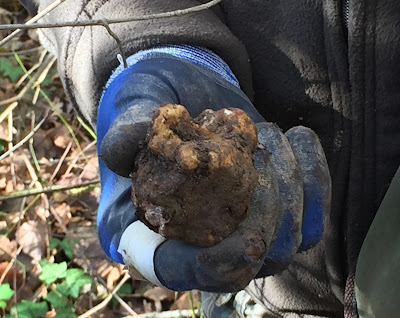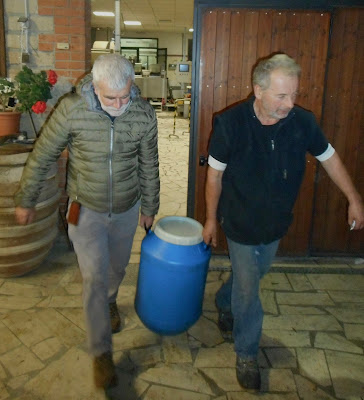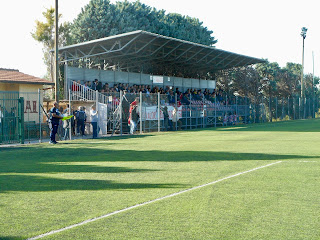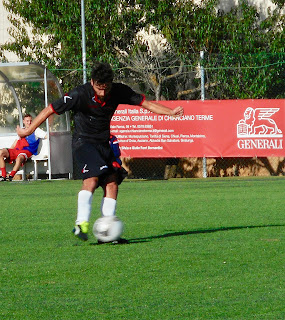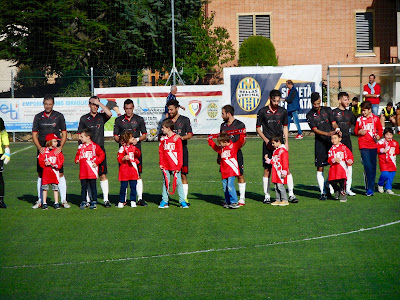Carol and Roger first came to Pienza in 1999. We've been back more than a dozen times since.
Since 2013, when we stayed for three months, we've been talking about the possibility of purchasing an apartment here.
A week ago, we mentioned the idea to some friends, and one couple said they knew of a place for sale that we might like.
After that, things moved pretty fast.
We always wanted to live inside the old walled city, and this place was just outside...but it was close.
The apartment is just one block outside the walls (see the red marker in the upper-left corner of the map)...a four minute walk to the main piazza and right around the corner from the town's best gelateria.
So we made an offer, never really expecting it would be accepted.
Today, we got word, it was!
Siamo Pientini.
Now we are Pientini.
This is the building. It contains four apartments. Ours is the upper left, where the windows are shuttered.
This room is called the soggiorno. It's a combination kitchen, living room, dining room...normal for an Italian home.
(These photos were taken in the springtime before the house was put on the market...and came from the realtor's web site.)
The other side of the same room.
The bedrooms are normally not much bigger than the bed, and ours is no exception.
The third room will have a small office and sofa bed. With luck, it will all fit.
Perhaps the best feature is the small terrazzo overlooking an overgrown garden out back. It's big enough for a tiny table and chairs...a great place to have coffee in the morning.
There's so much to do! Just the closing paperwork, dealing with the notary, bank and utilities will take a full week of Carol's time in January. Italy's ability to generate bureaucratic paperwork is legendary and mind-boggling.
Next up....season tickets for Pienza calcio!













